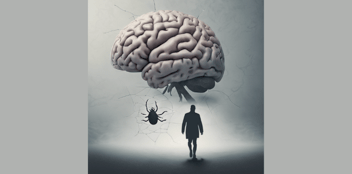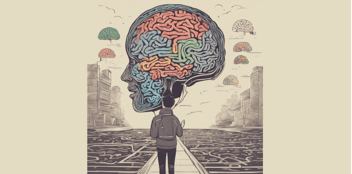Navigating the Neuropsychiatric Terrain of Tickborne Illnesses: The Hidden Mental Health Battle
- Home
- Blog

Amidst the beauty of nature's expanses lies a hidden threat, one far smaller than one might expect—ticks. These minute creatures, infamous for transmitting Lyme Disease and other tickborne illnesses, are often discussed in the context of the physical ailments they trigger. Yet, an ever-expanding body of scientific inquiry is bringing to light a sobering reality: the profound influence these pathogens exert on mental health.
The Unseen Adversary: Mental Health Impacts of Lyme Disease
Historically, Lyme Disease has been synonymous with symptoms like weariness, arthritic pain, and fevers. Today, scientific advancements are unmasking the intricate link between tickborne diseases and mental health concerns, such as depression, anxiety, and the elusive phenomenon of brain fog. This revelation is significant—it propels us to consider the full scope of impact that such illnesses have on one’s overall state of being.
When the bacteria responsible for Lyme Disease breach the defenses of the central nervous system, they instigate inflammation and disrupt the intricate workings of neurotransmitters. It's becoming increasingly clear that these biological disruptions have a direct hand in spawning a variety of psychiatric symptoms, encompassing mood disturbances and cognitive challenges. The ripple effect on an individual's life can be dramatic, with simple, everyday activities morphing into overwhelming hurdles.
Although the precise biological underpinnings continue to be mapped out by researchers, emerging evidence points towards a bacterial-induced neuroinflammatory response as a key player in this condition. This response appears to be intimately linked with changes in mood, challenges in mental processing, and a diminished capacity to concentrate—symptoms that can often be mistaken for other psychiatric disorders.
Insights from Research: The Lyme-Mind Connection
The scientific community has been pivotal in elucidating how Lyme Disease can usher in neuropsychiatric conditions:
Fallon and Nields (1994) drew attention to the neuropsychiatric dimensions of Lyme, underlining its wide-reaching cognitive repercussions.
Bransfield (2018) advocated for a nuanced psychiatric understanding to effectively address Lyme’s neuropsychiatric aspects.
Work by Logigian, Kaplan, and Steere (1990) documented the enduring neurological sequelae of Lyme, indicating the disease’s potential for sustained cognitive impact.
Fallon et al. (1998) raised concerns about the frequent underdiagnosis of neuropsychiatric Lyme, especially among the more susceptible demographics, such as children.
A Holistic Healing Perspective
For healthcare professionals, grasping the intricate nature of tickborne diseases is critical. In my practice, where a holistic health philosophy is paramount, it’s evident that merely treating physical manifestations is insufficient. A thorough diagnosis must encompass the gamut of psychological effects these diseases can wield.Treatment regimens that marry medical and psychological care are often most successful. By addressing the mental health complications tied to tickborne diseases, healthcare professionals not only treat but also empower those afflicted—helping them recover not just physical health but mental and emotional wellbeing as well.
To conclude, the increasing awareness of Lyme Disease’s neuropsychiatric implications calls for heightened vigilance and an integrated approach to treatment. The path to wellness for Lyme sufferers extends beyond bacterial eradication; it includes the restoration of mental and emotional balance. As we deepen our understanding of this complex relationship, we can offer not just hope, but a path to holistic health for those navigating this challenging journey.
For anyone grappling with concerns about Lyme Disease, I advocate reaching out to healthcare professionals who embrace a comprehensive view of health, recognizing the essential unity of mind and body in the pursuit of wellness.
.png?width=144&height=144&name=Untitled%20design%20(34).png)



